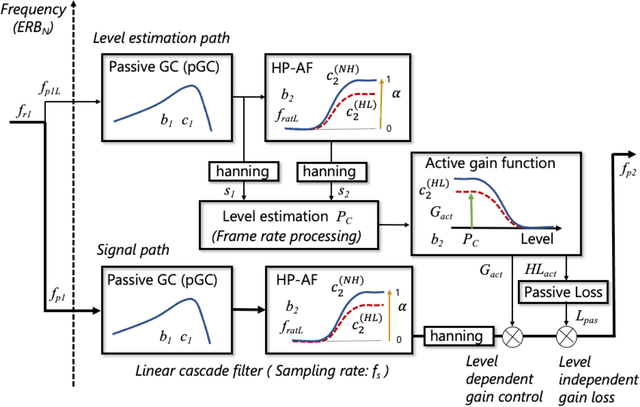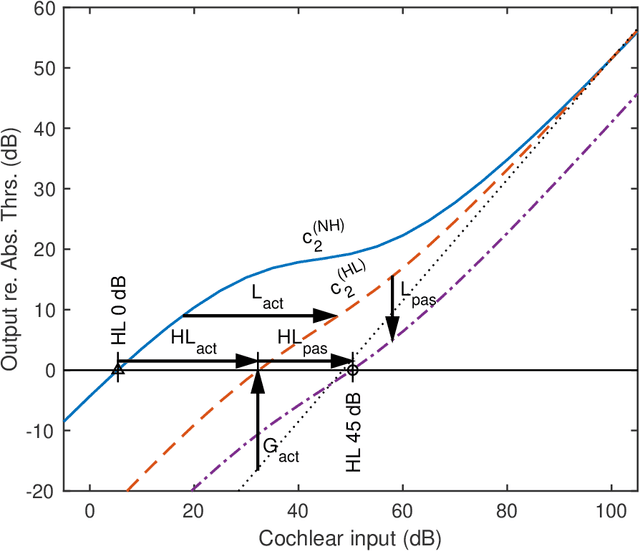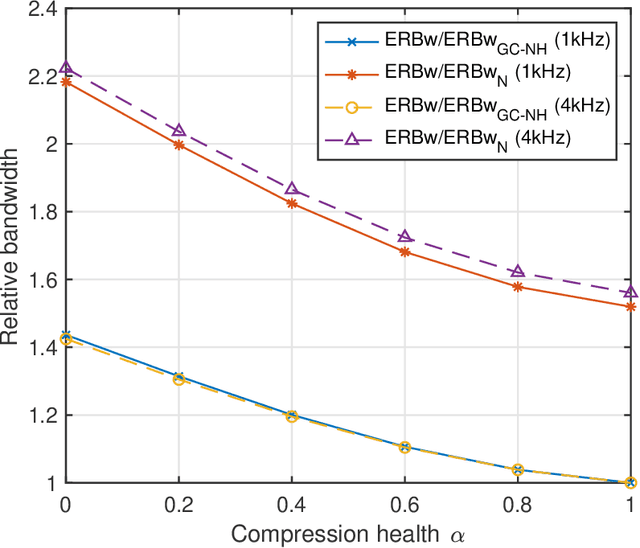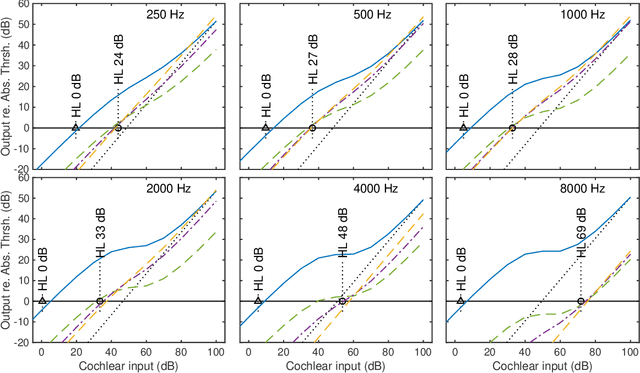WHIS: Hearing impairment simulator based on the gammachirp auditory filterbank
Paper and Code
Jun 14, 2022



A new version of a hearing impairment simulator (WHIS) was implemented based on a revised version of the gammachirp filterbank (GCFB), which incorporates fast frame-based processing, absolute threshold (AT), an audiogram of a hearing-impaired (HI) listener, and a parameter to control the cochlear input-output (IO) function. The parameter referred to as the compression health $\alpha$ controlled the slope of the IO function to range from normal hearing (NH) listeners to HI listeners, without largely changing the total hearing loss (HL). The new WHIS was designed provide an NH listener the same EPs as those of a target HI listener.The analysis part of WHIS was almost the same as that of the revised GCFB, except that the IO function was used instead of the gain function. We proposed two synthesis methods: a direct time-varying filter for perceptually small distortion and a filterbank analysis-synthesis for further HI simulations including temporal smearing. We evaluated the WHIS family and a Cambridge version of the HL simulator (CamHLS) in terms of differences in the IO function and spectral distance. The IO functions were simulated fairly well at $\alpha$ less than 0.5 but not at $\alpha$ equal to 1. Thus, it is difficult to simulate the HL when the IO function is sufficiently healthy. This is a fundamental limit of any existing HL simulator as well as WHIS. The new WHIS yielded a smaller spectral distortion than CamHLS and was fairly compatible with the previous version.
 Add to Chrome
Add to Chrome Add to Firefox
Add to Firefox Add to Edge
Add to Edge